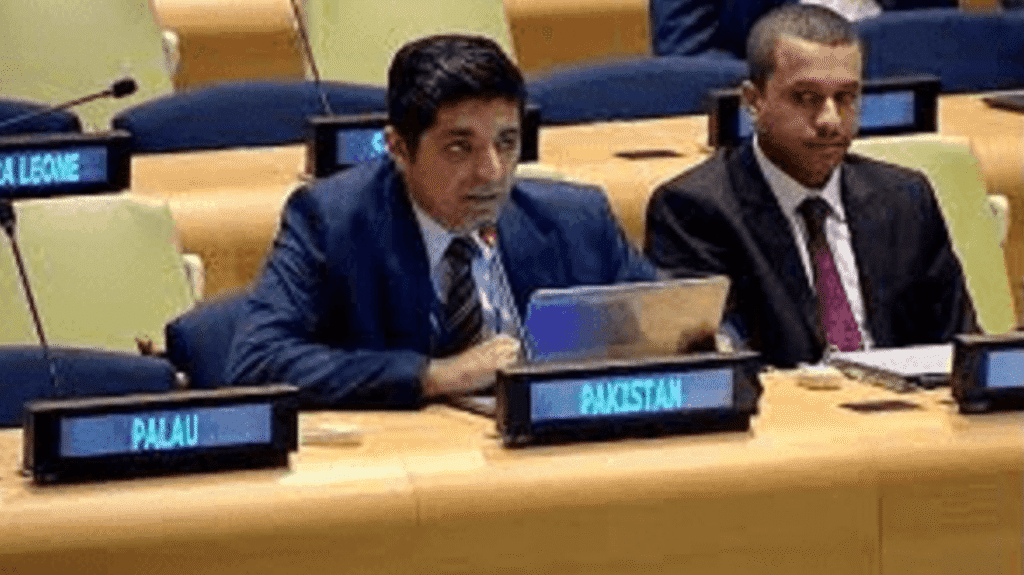Pakistan Alleges External Sponsorship of Terrorist Attack, Calls for Global Action Against Terrorism
Pakistan has presented “credible evidence” to the United Nations, claiming that the deadly Jaffar Express train hijacking was sponsored by its regional adversaries. The attack, which took place on March 11, saw Balochistan Liberation Army (BLA) terrorists ambush and hijack the Peshawar-bound train carrying 440 passengers. The operation to free the hostages lasted two days, concluding on March 12.
Counsellor Jawad Ajmal, representing Pakistan at the UN, informed the international community that the attack, which killed at least 30 innocent Pakistani nationals and left dozens more hostage, was externally orchestrated by hostile elements in the region. The statement was made during the launch of the “Victims of Terrorism Association Network” by the UN Office of Counter-Terrorism at the UN headquarters in New York.
Ajmal, deeply concerned by the recent Pahalgam attack, extended condolences to the victims’ families and wished the injured a swift recovery. In his address, he emphasized that Pakistan had been one of the most frequent and severe victims of terrorism over the past two decades, with over 80,000 lives lost and thousands more affected. Pakistan, he said, remains resilient in the face of these attacks.
“We honor the sacrifice of our martyrs, particularly those from our law enforcement and armed forces, who have fought relentlessly to protect our country,” Ajmal stated, urging the international community to provide unwavering support to the victims and survivors of such attacks.
Highlighting Pakistan’s ongoing battle against terrorism, Ajmal stressed the importance of a united, global response to prevent future atrocities. He called for the accountability of terrorists and their sponsors, underscoring the need for a victim-centric approach to counterterrorism efforts. He also remarked that addressing terrorism requires transcending political and geopolitical interests, focusing instead on global strategies that target the root causes of terrorism.
Pakistan’s stance on terrorism was unequivocal: it condemned all forms of terrorism, including state-sponsored terrorism, Islamophobia, and racially and ethnically motivated violence. Ajmal reinforced the point that the international community must tackle both the ideological and practical drivers of terrorism, noting the dangers of state-sponsored terrorism and the need for a universal, consensus-driven definition of terrorism.
Furthermore, Ajmal highlighted the growing challenges posed by modern tools like social media and the dark web in spreading divisive and violent ideologies, urging the world to combat these emerging threats. He also called for concerted action to combat disinformation campaigns that spread hate and xenophobia.
Pakistan’s Foreign Office, earlier in the month, had confirmed that the perpetrators of the Jaffar Express attack maintained communication with their handlers in Afghanistan during the incident. The Foreign Office clarified that there was no shift in Pakistan’s longstanding position on the involvement of India in sponsoring terrorism against Pakistan, with the current evidence pointing to Afghanistan as the source of support for the terrorists involved in this particular attack.
As Ajmal concluded his address, he reminded the global community of their moral and legal obligation to act against terrorism in all its forms, stressing that without decisive action, the cycle of violence and its tragic consequences would only continue.
